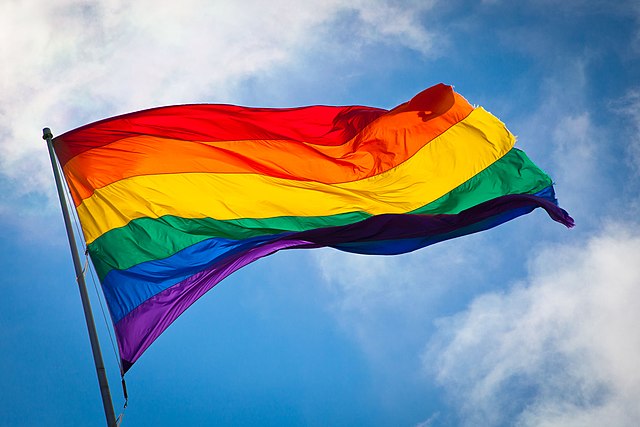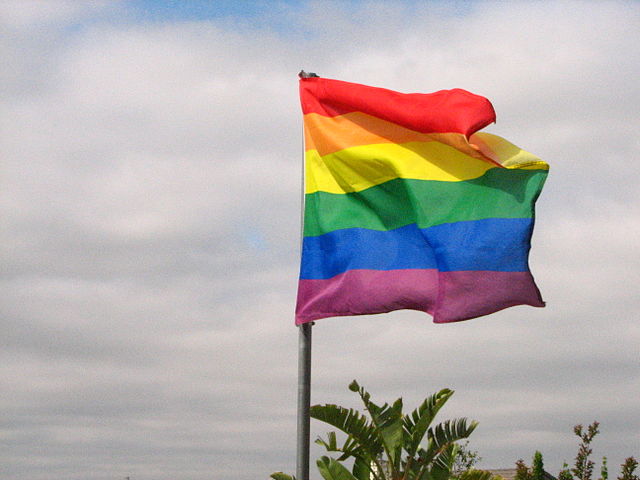
Are We Thinking Straight?: The Politics of Straightness in a Lesbian and Gay Social Movement Organization, a sociology book in the Thammasat University Library collection examines the establishment of Gay–Straight Alliances (GSAs), student-led or community-based organization, in colleges and universities as well as high schools and middle schools around the world.
The purpose of GSAs is to provide a safe and supportive environment for lesbian, gay, bisexual, and transgender (LGBT) young people as well as their heterosexual allies.
For younger students, GSAs are supervised by a responsible teacher. The first GSAs were established in the 1980s.
Scientific studies show that GSAs have a positive academic, health, and social impact on students of a minority gender identity.
The author of Are we thinking straight? is Professor Daniel K. Cortese, who teaches sociology at Governors State University in University Park, Illinois, the United States of America (USA).
The first gay–straight alliance was formed in 1988 at Concord Academy in Concord, Massachusetts.
LGBT students worldwide routinely hear homophobic remarks and experience bullying from students and instructors at school.
It helps to know that heterosexual allies care about such incidents and are willing to work to stop them.
Homophobia at schools is directly linked to student depression and low self-esteem.
LGBT students attending schools with active support clubs report hearing fewer homophobic expressions and experience less victimization than LGBT students attending a school without a GSA or support club.
GSAs also promote education about LGBT issues to students and encourage social activism. Begun by students, GSAs confront discrimination.
In the USA, a 2011 study showed that two thirds of LGBT students reported feeling unsafe at school.
Some stayed away from school because of safety concerns.
LGBT high school students were less likely to continue on to higher education than straight youth.
Negative experiences in primary education made them decide not to pursue opportunities for advanced education.
Active GSAs on high school campuses are associated with better academic results for LGBT students.
LGBT students at schools with active GSAs are less likely to feel unsafe at school and less likely to miss school due to threats to their safety.
GSAs are also associated with better mental health outcomes, including less student depression and psychological distress and higher self-esteem.
Positive impacts of GSAs in students’ lives include increased school attendance and attachment to the school, sense of empowerment and hope, reduction in stress and isolation, and increased confidence and sense of pride.

In 2012, the United States Secretary of Education, Arne Duncan, released a video on the YouTube channel of the U.S. Department of Education commemorating GSA Day and endorsing GSA clubs in schools.
GSAs have been established in Australia, the United Kingdom, New Zealand, Canada and some parts of the United States.
In 2016, a gay–straight alliance was started at The American College of Sofia in Bulgaria.
In 2008, students at The University of Hong Kong founded Queer Straight Alliance (QSA), a registered society under Hong Kong laws. For several years it was the only GSA in the city, and it serves students in all campuses through social activities, career support and advocacy. In more recent years, university students in the city have formed other student LGBT groups.
The first GSA in India was started in Tagore International School in New Delhi in 2014.
Thailand and Potential Usefulness of GSAs
As Thai media have reported, bullying of LGBT youth is still pervasive in Thai schools.
A United Nations Educational, Scientific and Cultural Organization (UNESCO) report on school bullying on the basis of sexual orientation and gender identity in Thailand noted,
According to universal human rights principles, including the Universal Declaration of Human Rights (article 26), every human being has the right to education. Bullying and harassment can violate this right by interrupting the attendance and participation in school of those affected, and the quality of learning and school life more broadly. As a recognized form of violence, bullying also undermines other fundamental rights to health, safety, dignity and freedom from discrimination. While potentially any learner can be affected, those who are different from the majority are most likely to be singled out for abuse. In particular, students who are, or who are perceived to be, lesbian, gay, bisexual or transgender (LGBT) tend to be disproportionately affected. In many Western and Asian contexts, over half of LGBT students report having been bullied because of their same-sex attraction or because of their transgender expressions… LGBT students often try to protect themselves from violence and intimidation by hiding their gender identity or sexuality from their friends and families .Thailand is often perceived by both foreigners and some of its own population as very accepting of sexual and gender diversity. A Thai government agency makes use of this perception in a campaign aimed at increasing the number of foreign LGBT tourists in Thailand, gothai.befree. Yet some researchers have suggested that Thai society is “tolerant but unaccepting” toward same-sex attracted individuals and concluded that the perception of Thailand as a “gay heaven” is a myth. There has been research on school bullying in Thailand, but only anecdotal evidence on bullying specifically targeting students who are, or are perceived to be, LGBT, or mechanisms to counter it in Thai schools. This study aimed to fill this gap in evidence, and to identify policy and programme implications. It is the first systematic study on the issue in Thailand. The analysis presented here is from a study commissioned by UNESCO Bangkok and Plan International Thailand, and conducted by Mahidol University. The study collected quantitative and qualitative data from students, administrators and teachers in five provinces in four regions (Bangkok, Central, North, Northeast and South) of Thailand. 2,070 students completed a computerized, self-administered survey. Qualitative data were collected from over 450 people including students, teachers and school administrators through in-depth interviews and focus group discussions. All students were in levels 1-6 of secondary education (grades 7-12); their ages ranged from 13 to 20 years.
Thai understandings of bullying
Both students and teachers described a continuum of behaviours ranging from kan yok-lo (teasing), considered harmless, through kan klaeng, used for less serious kinds of bullying or rough teasing, to kan rang kae, which is the academic Thai term for “bullying,” and was used for the most severe cases. Students’ differentiation depended often on perceived intent (hostile vs. friendly) and the relationship between those involved (friend, enemy, or neither).These were recognised to include physical, verbal, social, sexual and online behaviours. Teachers often associated bullying primarily with physical fights. While “teasing” was not seen always as a problem by different parties, it appeared to contribute to the legitimisation of subsequent, more severe behaviours among same-sex attracted and transgender youth.
Anti-LGBT bullying
More than half (56%) of self-identified LGBT students in the study reported having been bullied within the past month because of their sexual orientation or gender identity. Among students that did not identify as LGBT, 25% reported being bullied because they were perceived to be transgender or same-sex attracted. This confirms research suggesting that it is the mere perception of same-sex attraction or of transgender identity that puts people at risk…
Toms, or female students with masculine gender identity/presentation, seemed to be the least liked group; some schools mentioned specifically anti-tom hate groups. When compared, lesbian, female bisexual and tom students had a higher prevalence of victimization due to their perceived sexual orientation or gender identity than gay or bisexual males or trans*women students. This was true overall, as well as for each type of bullying.
A United Nations Children’s Emergency Fund (UNICEF) report adds further documentation, making GSAs a timely topic for the Kingdom.

(All images courtesy of Wikimedia Commons)
